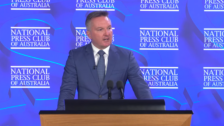Policymakers urged to simplify ‘unnecessarily complex’ SMSF system
Australia’s unique self-managed superannuation (SMSF) system has become rife with unnecessary complexity as it has evolved, with layer after layer of technical updates to the sector adding “no discernible benefit” to trustees, members and their advisers according to the SMSF Association.
In the last decade, especially, as the self-governing route has become more popular – just under one third, or almost $1 billion, of our national superannuation hoard resides in SMSFs – the rules governing the system have veered into the “unnecessarily complex”, argues SMSF Association chief executive Peter Burgess.
“Nowhere is this complexity more evident than with Transfer Balance Caps (TBCs), ISuper Balance Thresholds (SBTs), and the rules overseeing the notice of intent to claim a tax deduction,” the CEO says. “All three issues would benefit from being simplified.”
Burgess, who took over leadership of the association from John Maloney at the conclusion of last year’s SMSF Association national conference in Adelaide, will use this year’s Brisbane conference in late February to lobby for less convoluted architecture around the system in order to make it less costly and prohibitive.
He cites individual indexing of the TBC as a key area of consternation that is, by its ever-changing nature, only set to get worse.
“Indexing the TBCs on 1 July 2021 and 1 July 2023 has added further complexity to the system, having shifted from having a single cap to individual caps ranging from $1.6 million to $1.9 million,” he says. “This is causing confusion and increasing costs across the sector – and can only increase with future indexation.
“It is no different to the introduction of multiple TSB thresholds that have made it increasingly difficult for individuals to understand their options. In our opinion, the number of TSB thresholds could be significantly reduced,” he continues.
One of the most vexing areas of complexity, he says, is legislation around the notice of intent to claim a tax deduction. At this point in time making amendments to the affiliated rules should be a priority, he says.
“How these rules operate is overly complex, contains multiple hurdles and points of failure. The result is the loss of a tax deduction for an individual making the contribution.
“The regime is inflexible and does not allow for amendments or remediation, with a point of failure often being due to a simple administrative error that taxpayers are unable to remedy, and the Commissioner of Taxation has no discretionary powers to resolve,” Burgess continues.
“The operative provisions need reform and modernisation to ensure the law operates in a manner that is fit for purpose.”










